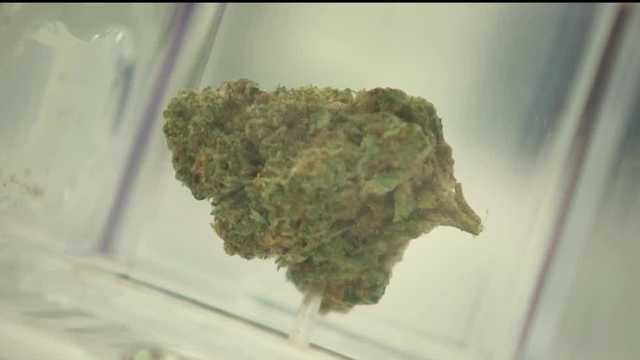Study links THC and marijuana to heart disease
A recent study suggests smoking marijuana and consuming THC-laced edibles could be linked to heart disease.”THC, the active ingredient in marijuana, is the psychoactive substance that gives people the feeling of a high, but it does have risks,” Dr. Abinash Achrekar, KOAT’s medical expert, said.A study done at the University of California at San Francisco says people who regularly smoke marijuana or consume THC edibles showed signs of early cardiovascular disease similar to tobacco smokers.”Vascular function is the healthiness of our smallest blood vessels,” Achrekar said. “Our blood vessels are lined on the inside with a cell called endothelium. This makes the vessel a live organ.”Damage to those vessels can cause heart disease. We took the study to a local THC shop to get their reaction.”It’s kind of a vague article,” Joseph Fernandez, the manager at Vice Cannabis, a local dispensary, said. “It doesn’t really give, like, a breakdown.”Fernandez mentioned he would like to see a more in-depth study, which looks at demographics and other contributing factors to heart disease.”Give us some details like do some actual research, test these people, test this group of people will test this group of people, and then give us a breakdown,” Fernandez said. “Let us see it for everybody.”Achrekar said the study is just in its beginning stages.”That’s true,” Achrekar said. “But that doesn’t mean that we shouldn’t use this. It’s still good science. This is an association, not causation. So this means that we can say that those cannabis users have poor vascular function. It doesn’t mean that cannabis causes poor vascular function.”Overall, Achrekar said another round of research needs to happen before people can directly link the use of these substances to heart disease, but people should acknowledge there is a relationship between the two.
A recent study suggests smoking marijuana and consuming THC-laced edibles could be linked to heart disease.
“THC, the active ingredient in marijuana, is the psychoactive substance that gives people the feeling of a high, but it does have risks,” Dr. Abinash Achrekar, KOAT’s medical expert, said.
A study done at the University of California at San Francisco says people who regularly smoke marijuana or consume THC edibles showed signs of early cardiovascular disease similar to tobacco smokers.
“Vascular function is the healthiness of our smallest blood vessels,” Achrekar said. “Our blood vessels are lined on the inside with a cell called endothelium. This makes the vessel a live organ.”
Damage to those vessels can cause heart disease. We took the study to a local THC shop to get their reaction.
“It’s kind of a vague article,” Joseph Fernandez, the manager at Vice Cannabis, a local dispensary, said. “It doesn’t really give, like, a breakdown.”
Fernandez mentioned he would like to see a more in-depth study, which looks at demographics and other contributing factors to heart disease.
“Give us some details like do some actual research, test these people, test this group of people will test this group of people, and then give us a breakdown,” Fernandez said. “Let us see it for everybody.”
Achrekar said the study is just in its beginning stages.
“That’s true,” Achrekar said. “But that doesn’t mean that we shouldn’t use this. It’s still good science. This is an association, not causation. So this means that we can say that those cannabis users have poor vascular function. It doesn’t mean that cannabis causes poor vascular function.”
Overall, Achrekar said another round of research needs to happen before people can directly link the use of these substances to heart disease, but people should acknowledge there is a relationship between the two.


